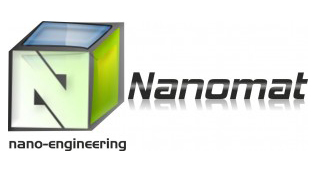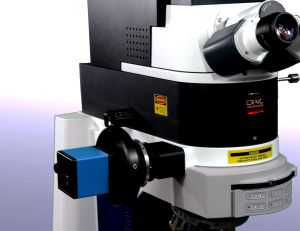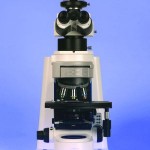Raman microspectrometer
The versatile CRAIC Apollo™ Raman microspectrometer designed for analytical labs.
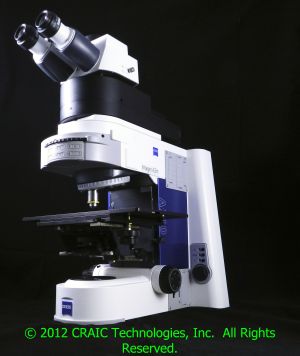
TheCRAIC Apollo™ Raman spectrometer is designed for fast, easy micro-Raman spectroscopy so you can focus on sample measurements and results, not instrument setup. As such, it is perfect for routine research, quality control and failure analysis. The CRAIC Apollo™ Raman spectrometer employs optics, software and hardware all optimized for Raman spectroscopy of microscopic samples. The CRAIC Apollo™ Raman spectrometer is perfect for rapid, non-destructive analysis in fields such as life sciences, materials science, chemistry and physics.
The CRAIC Apollo™ Raman microspectrometer features a modular design. Each module includes laser excitation, optical interface, Raman spectrometer and software. Modules are offered with different lasers wavelengths and can be used together for the ultimate in experimental flexibility.
With an all solid state design, The CRAIC Apollo™ Raman microspectrometer is able to measure Raman scattering from microscopic samples quickly, easily and non-destructively. This Raman system is durable, easy to use, highly sensitive and economical to own and operate.
Key Features*
|
More capabilities when combined with other CRAIC Instruments:
- Thin film thickness measurements.
- Refractive index measurements with the rIQ™ package.
- Colorimetry of microscopic samples.
- Traceable spectroscopy standards designed for microspectrophotometers
- Manual or fully automated operation
- Precision temperature control of samples
- Specialized software including statistical analysis, spectral databasing, image analysis and more
| Spectral Surface Mapping™
Combines hardware and software for automated spectral analysis and 3D mapping of samples with microscopic spatial resolution. 3D maps of the Raman spectra of samples may be generated. |
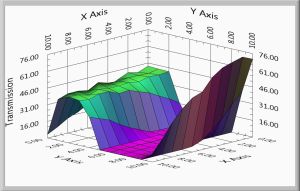 |
Applications
- Life Sciences
- Flat Panel Displays
- Semiconductor Metrology
- Biotechnology Development
- Process Impurity Detection
- Biological Research
- MEMS devices
- WMD Detection
